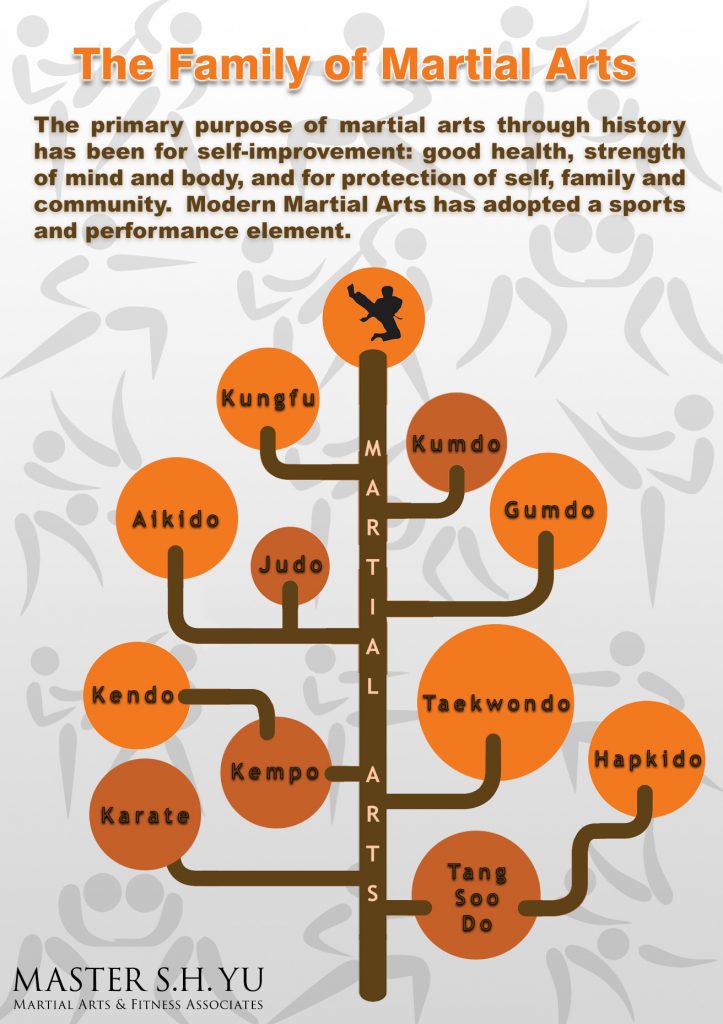The Relevance Of Adaptability In Martial Arts Training
The Relevance Of Adaptability In Martial Arts Training
Blog Article
Developed By-Hyllested Randrup
Did you understand that adaptability plays an important role in fighting styles training?
As a matter of fact, a research performed by the International Journal of Sports Physical Treatment revealed that over 80% of martial musicians deal with minimal versatility.
Yet why is versatility so essential? Well, it not just improves your efficiency and method however also minimizes the danger of injuries.
So, if you're wanting to take your martial arts skills to the next level and remain injury-free, you'll most definitely want to maintain reading.
Benefits of Adaptability in Fighting Style
Flexibility in martial arts brings many advantages to practitioners, permitting you to improve your performance and lower the threat of injury. By boosting your versatility, you boost your series of movement, enabling you to execute strategies with greater accuracy and effectiveness.
This enhanced agility and fluidness in your activities can offer you a competitive edge, permitting you to react quicker and adjust to various scenarios throughout sparring or competitions. Additionally, increased flexibility aids to avoid injuries by enhancing muscle mass elasticity and joint wheelchair.
It allows your body to relocate more openly, decreasing the stress on your muscular tissues and tendons. This, in turn, lessens the possibilities of strains, strains, and muscle mass pulls. By integrating versatility training into your martial arts technique, you not only enhance your performance yet additionally safeguard your physical well-being.
Techniques to Improve Flexibility
To improve your adaptability in fighting styles, you can incorporate different extending exercises into your training regimen.
One reliable method is dynamic stretching, which involves moving with a full range of movement to warm up your muscular tissues and boost flexibility. Examples consist of leg swings, arm circles, and trunk turnings.
One more strategy is fixed stretching, where you hold a go for a sustained time period. This assists lengthen and relax your muscle mass, enhancing versatility over time. https://gunnerqxdio.get-blogging.com/33746045/breaking-down-belt-degrees-in-taekwondo-what-you-required-to-know fixed go for fighting styles consist of the butterfly stretch, hamstring stretch, and shoulder stretch.
In addition, integrating yoga or Pilates right into your training can additionally considerably improve your flexibility.
Keep in mind to always heat up before stretching and listen to your body to stay clear of injury.
Adaptability Training for All Ability Degrees
As you proceed in your fighting styles training, enhancing your versatility ends up being crucial for boosting your total efficiency. Adaptability training isn't only beneficial for innovative professionals yet likewise for novices and intermediate pupils.
Regardless of your skill level, integrating adaptability workouts into your training regimen will aid you create a wide range of activity, protect against injuries, and enhance your method implementation.
For novices, adaptability training can aid improve your type and pose, permitting you to carry out activities correctly and effectively. Intermediate specialists can utilize versatility training to additional raise their variety of activity and boost their fluidness in performing complex techniques. Advanced pupils can gain from flexibility training by maintaining and fine-tuning their existing adaptability, allowing them to do innovative steps easily.
Verdict
In conclusion, accepting flexibility in your martial arts training is critical. By integrating strategies to boost flexibility, you can boost your efficiency and prevent injuries.
Keep in gaylord kajukenbo , 'A flexible body is a durable body.' So, maintain pressing your restrictions, stretching routinely, and reap the benefits of a flexible and dexterous physique.
